The Agile Scrum Ceremony Most Talked About but Least Paid Attention To
Among all scrum ceremonies, the Sprint retrospective is the most important and most talked about ceremony but the least paid attention to.
Join the DZone community and get the full member experience.
Join For FreeIn this digital world where all companies want their products to have a cutting edge over others and they want faster go to market, most companies want their teams to follow Agile scrum methodology; however, we observed most teams are following Agile scrum ceremonies for the name sake only. Among all scrum ceremonies, the Sprint retrospective is the most important and most talked about ceremony but the least paid attention to. Many times, scrum masters keep doing the same canned single routine format of a retrospective, which is: what went well? What didn't go well? and What is to improve? Let us analyze what are the problems the team faces, their impact, and recommendations to overcome.
Problems and impact of routine format Sprint retrospective:
- Doing a routine single format made teams uninterested, and they started losing interest. Either team members stopped attending this ceremony, kept silent, or didn't participate.
- Often, action items came out of retrospectives not being followed up during the sprint.
- Status of action items not discussed in next sprint retrospective
- The team started losing faith in the ceremony when they saw previous sprint action items still existed and kept accumulated
- This leads to missing key feedback and actions sprint after sprint and hampers the team's improvements. With this, even after 20-30 sprints, teams keep making the same mistakes again and again. Ultimately, the team never becomes mature.
Recommendations for Efficient Sprint Retrospective
We think visually. Try following fun-filled visual retrospective techniques:
- Speed car retrospective
- Speed boat retrospective
- Build and reflect
- Mad, Sad, Glad
- 4 Ls Retrospective
- One-word Retrospective
- Horizontal Line retrospective
- Continue, stop, and start-improve
- What went well? What didn't go well? What is to improve?
- Always record, publish, and track action items.
- Ensure leadership does not join sprint retrospectives, which will make the team uncomfortable in sharing honest feedback.
Every sprint retrospective first discusses the status of action items from the previous sprint; this will give confidence to the team that their feedback is being heard and addressed.
Now let us discuss these visual, fun-filled sprint retrospective techniques in detail:
1. Speed Car Retrospective
This retrospective shows that the car represents the team, the engine depicts the team's strength, the Parachute represents the impediments that slow down the car's speed, the Abyss shows the danger the team foresees ahead, and the Bridge indicates the team's suggestions on how to overcome and cross this abyss without falling into it.
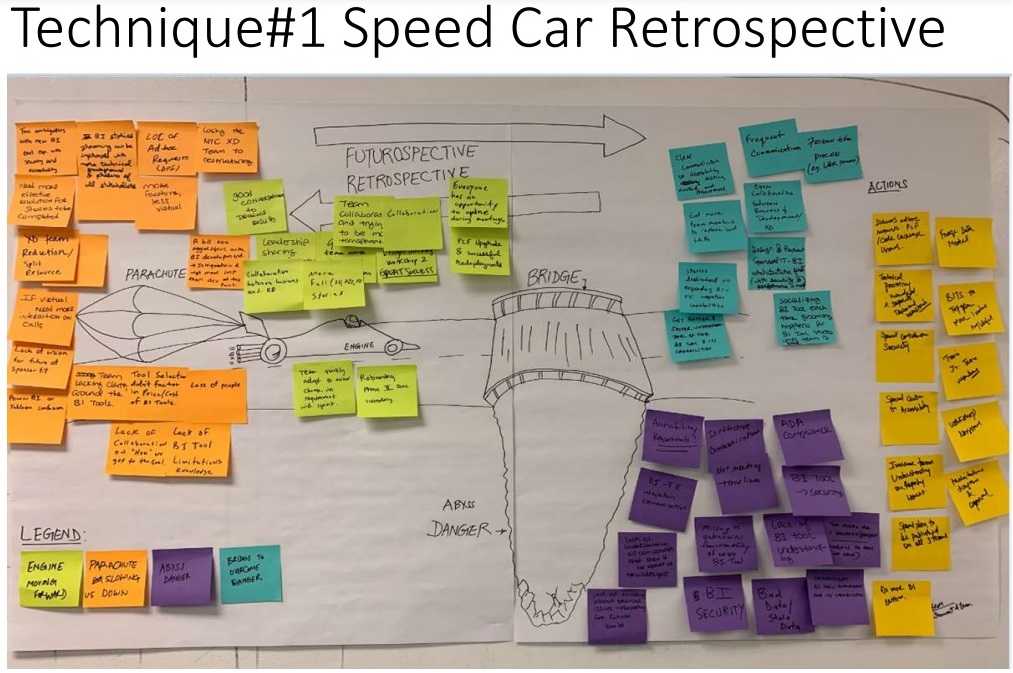
2. Speed Boat Retrospective
This retrospective shows that the boat represents the team; the anchors represent problems that are not allowing the boat to move or slowing it down and turn these anchors into gusts of winds, which in turn represents the team's suggestions, which the team thinks will help the boat move forward.
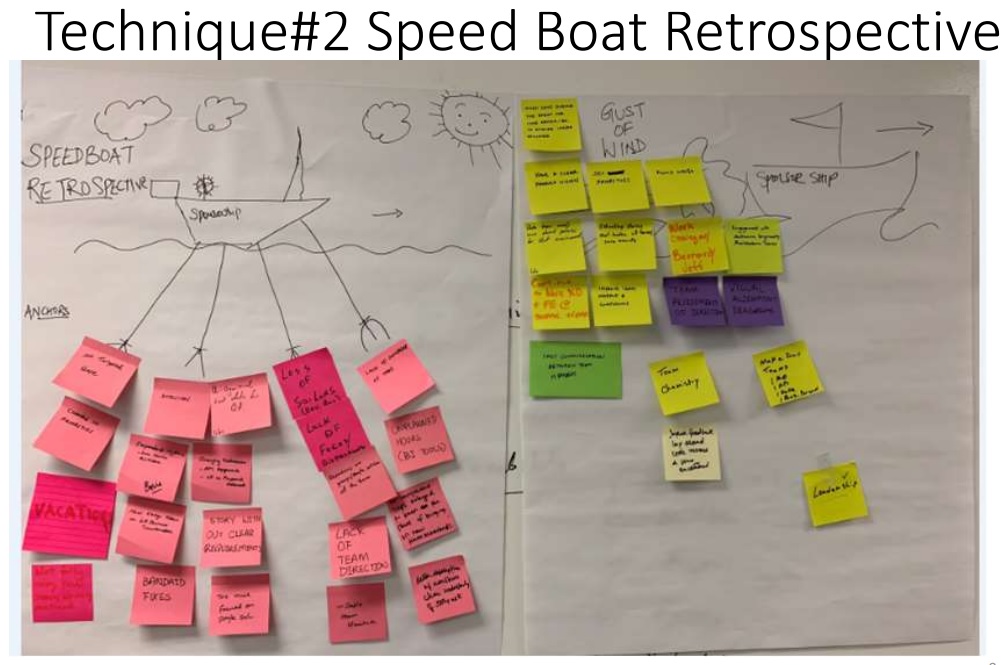
3. Build and Reflect
Bring legos set and divide teams into multiple small groups, then ask the team to build two structures. One represents how the sprint went, and one represents how it should be and then ask each group to talk about their structures and suggestions for the sprint.
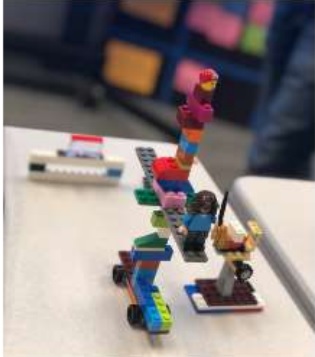
4. Mad, Sad, Glad
This technique discusses what makes the team mad, sad, and glad during the sprint and how we can move from mad, sad columns to glad columns.
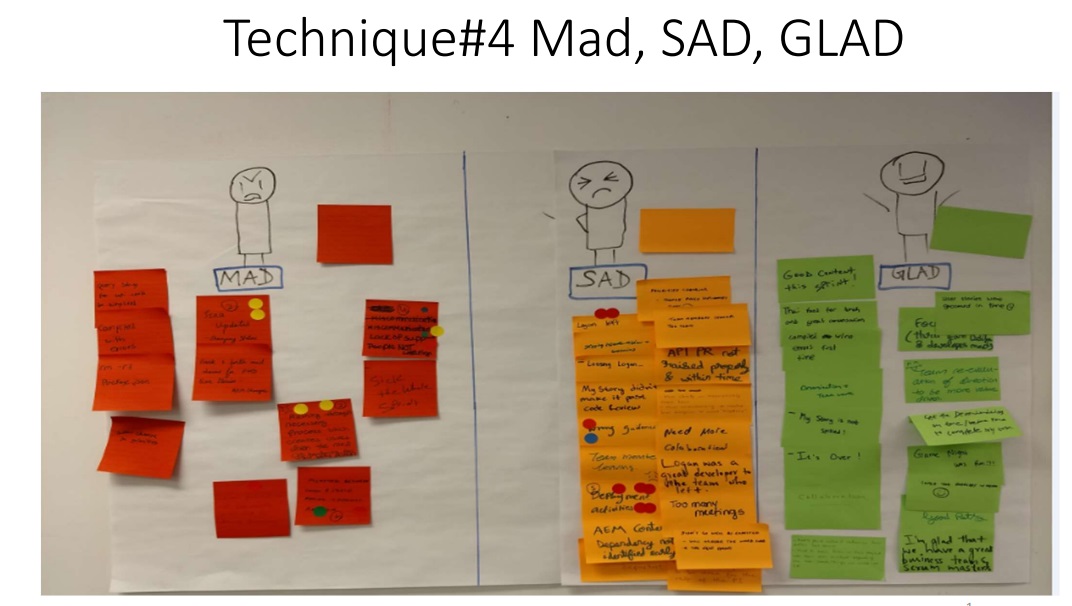
5. Four Ls: Liked, Learned, Lacked and Longed
This technique talks about four Ls. What team "Liked," What team "Learned," What team "Lacked," and What team "Longed" during the sprint, and then discuss each item with the team.

6. One-Word Retrospective
Sometimes, to keep the retrospective very simple, ask the team to describe the sprint experience in "one word" and then ask why they describe sprint with this particular word and what can be improved.
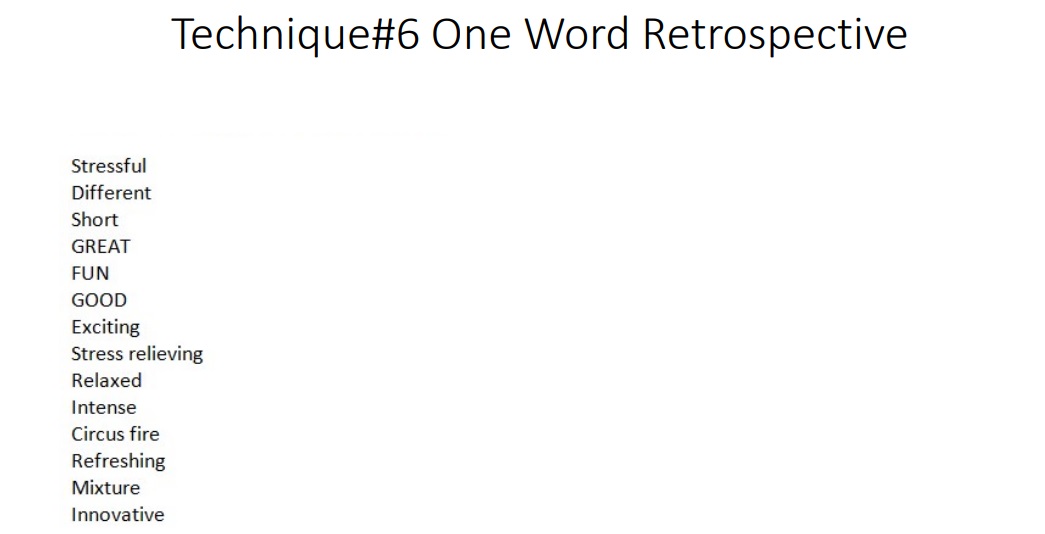
7. Horizontal Line Retrospective
Another simple retrospective technique is to draw a horizontal line and, above the line, put items that the team feels are "winning items" and below line items that the team feels are "failures" during the sprint.
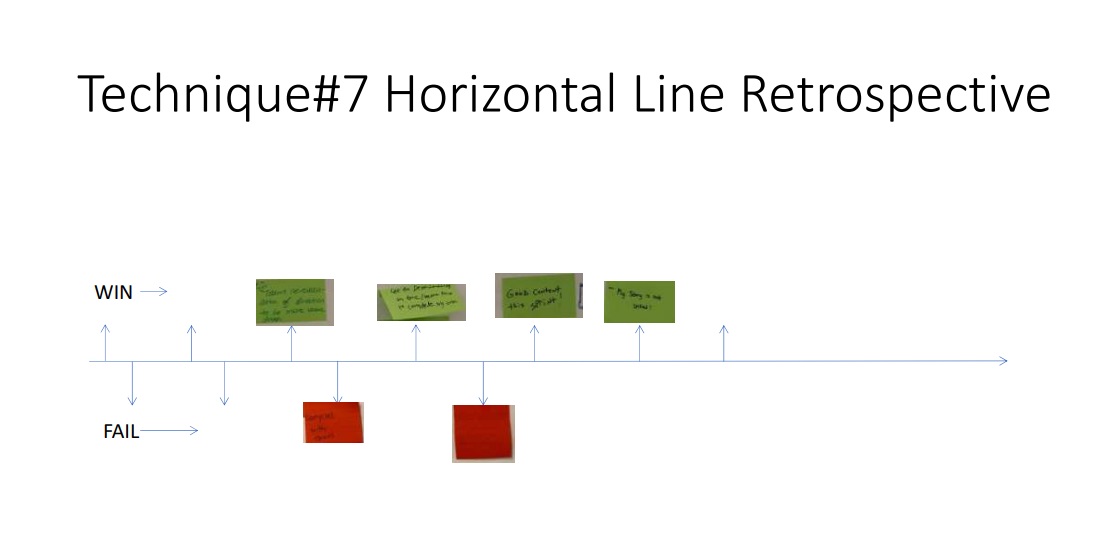
8. Continue, Stop, Start-Improve
This is another technique to capture feedback in three categories, viz. "Continue" means which team feels the team did great and needs to continue, "Stop" talks about activities the team wants to stop, and "Start-Improve" talks about activities that the team suggested to start doing or improve.
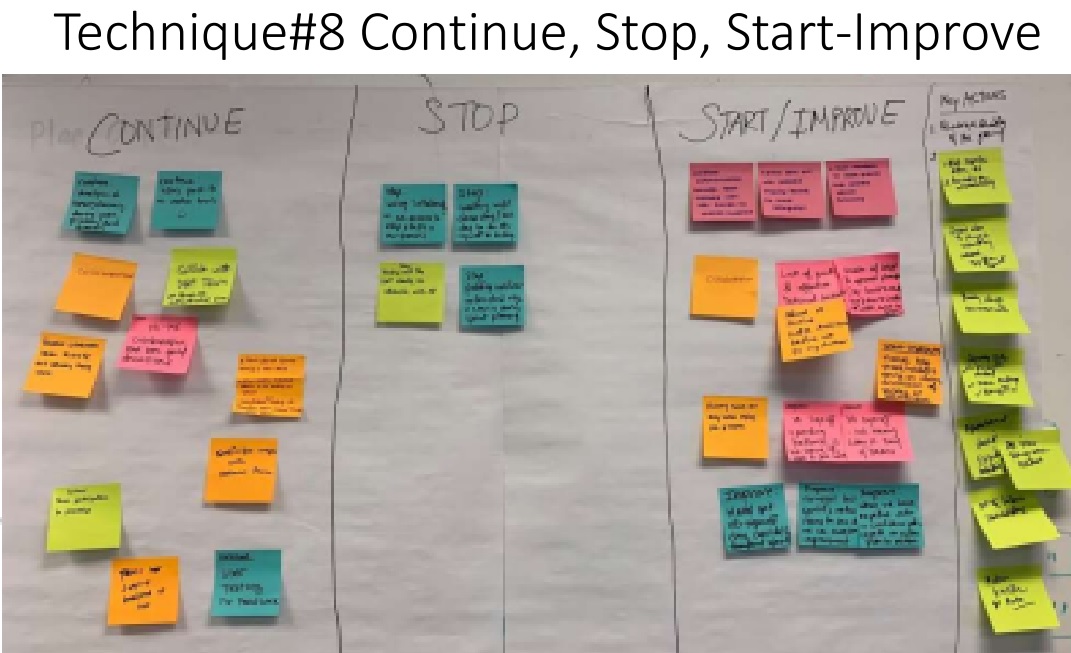
9. What Went Well? What Didn’t Go Well? And What Is To Improve?
This is well well-known and most practiced retrospective technique to note down points in the mentioned three categories.
We can keep reshuffling these retrospective techniques to keep the team enthusiastic to participate and share feedback in a fun, fun-filled, and constructive environment. Remember, feedback is a gift and should always be taken constructively to improve the overall team's performance.
Go, Agile team!!
Opinions expressed by DZone contributors are their own.

Comments